| |||||||||||||||||
| |||||||||||||||||
County results | |||||||||||||||||
| |||||||||||||||||
The 1986 United States Senate election in Pennsylvania was held on November 4, 1986. Incumbent Republican U.S. Senator Arlen Specter won re-election to a second term.
| |||||||||||||||||
| |||||||||||||||||
County results | |||||||||||||||||
| |||||||||||||||||
The 1986 United States Senate election in Pennsylvania was held on November 4, 1986. Incumbent Republican U.S. Senator Arlen Specter won re-election to a second term.
This section possibly contains original research .(August 2016) (Learn how and when to remove this template message) |
Despite the popularity of his Republican counterpart John Heinz, Arlen Specter was viewed somewhat tepidly by the Pennsylvania electorate entering the race, although both men shared similar moderate profiles. Additionally, economic woes had dragged down the popularity of Republican candidates in the industrial states. Democrats sensed the vulnerability of the incumbent, and two men with similar experience in the U.S. House, but contrasting political views, vied for the nomination. Don Bailey, the state's incumbent Auditor General, was viewed[ by whom? ] as the initial favorite, as he projected a strong blue collar image and had moderate positions that were often relatively close to Specter's. Bob Edgar, a Methodist minister and sitting Congressman, had more liberal viewpoints, as he was connected with the Vietnam War-era peace movement and the anti-corruption movement following the Watergate scandals. However, issues played a very minor role in the primary, which instead showcased the state's geographical divide, with Delaware County-based Edgar narrowly defeating Westmoreland County-based Bailey. [1]

Henry John Heinz III was an American businessman and politician from Pennsylvania. A Republican, Heinz served in the United States House of Representatives from 1971 to 1977, and in the United States Senate from 1977 until he was killed in a plane crash in Lower Merion Township, Pennsylvania, in 1991.

Donald Allen "Don" Bailey is an American politician and lawyer, from the Commonwealth of Pennsylvania. He was a Democratic member of the United States House of Representatives from 1979 to 1983, Auditor General of Pennsylvania from 1985 to 1989, and a candidate for the Democratic nomination for United States Senate and Governor of Pennsylvania. His Congressional District (PA-21) included all of Westmoreland County, Pennsylvania with a sliver of Allegheny County, Pennsylvania, prior to the 1981 redistricting.

The Vietnam War, also known as the Second Indochina War, and in Vietnam as the Resistance War Against America or simply the American War, was an undeclared war in Vietnam, Laos, and Cambodia from 1 November 1955 to the fall of Saigon on 30 April 1975. It was the second of the Indochina Wars and was officially fought between North Vietnam and South Vietnam. North Vietnam was supported by the Soviet Union, China, and other communist allies; South Vietnam was supported by the United States, South Korea, the Philippines, Australia, Thailand and other anti-communist allies. The war is considered a Cold War-era proxy war from some US perspectives. It lasted some 19 years with direct U.S. involvement ending in 1973 following the Paris Peace Accords, and included the Laotian Civil War and the Cambodian Civil War, resulting in all three countries becoming communist states in 1975.
True to his past as a political organizer, Edgar developed a strong grassroots campaign and reached out to alienated left-leaning voters. He attacked Specter as a politician who compromised his moderate political positions when pressured by the conservative administration of Ronald Reagan. Edgar, who had a history of winning tight races in his congressional district, was a financial underdog, as Specter was able to raise nearly three times as much for his campaign warchest. Originally attempting a positive campaign, Specter changed his strategy in response to Edgar's personal attacks and characterized Edgar as soft on defense issues and as a liberal ideologue. Edgar was never able to find a message that resonated with voters in the western portion of the state, and Specter undercut Edgar's support in both candidates' suburban Philadelphia home by presenting himself as representative of the views of the average suburban voter. [1]
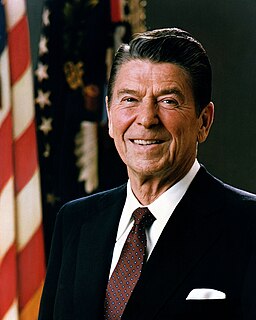
Ronald Wilson Reagan was an American politician who served as the 40th president of the United States from 1981 to 1989. Prior to his presidency, he was a Hollywood actor and union leader before serving as the 33rd governor of California from 1967 to 1975.
| Party | Candidate | Votes | % | |
|---|---|---|---|---|
| Republican | Arlen Specter | 1,906,537 | 56.4% | |
| Democratic | Robert W. Edgar | 1,448,219 | 42.9% | |
| Independent | Lance S. Haver | 23,470 | 0.7% | |

Arlen Specter was an American lawyer, author, and politician who served as United States Senator for Pennsylvania. Specter was a Democrat from 1951 to 1965, then a Republican from 1965 until 2009, when he switched back to the Democratic Party. First elected in 1980, he represented Pennsylvania in the U.S. Senate for 30 years.

Joseph Merrill Hoeffel III is an American author and politician. A Democrat, Hoeffel was a member of the United States House of Representatives from 1999 to 2005, representing Pennsylvania's 13th congressional district. He also served multiple terms on the Montgomery County Board of Commissioners, and from 1977–84, was a member of the Pennsylvania House of Representatives. A native of Philadelphia, he is a graduate of Boston University and Temple University School of Law.
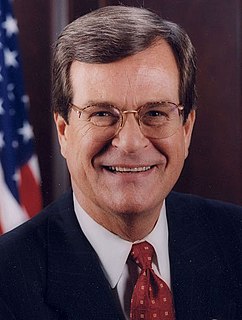
The 1998 United States Senate elections were held on November 3 and seen as an even contest between the Republican Party and Democratic Party. While the Democrats had to defend more seats up for election, Republican attacks on the morality of President Bill Clinton failed to connect with voters and anticipated Republican gains did not materialize. The Republicans picked up open seats in Ohio and Kentucky and narrowly defeated Democratic incumbent Carol Moseley Braun (Illinois), but these were cancelled out by the Democrats' gain of an open seat in Indiana and defeats of Republican Senators Al D'Amato and Lauch Faircloth. The balance of the Senate remained unchanged at 55–45 in favor of the Republicans. With Democrats gaining five seats in the House of Representatives, this marked the first time since 1934 that the out-of-presidency party failed to gain congressional seats in a mid-term election, and the first time since 1822 that the party not in control of the White House failed to gain seats in the mid-term election of a President's second term. These are the last senate elections that resulted in no net change in the balance of power.
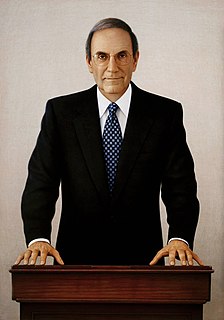
The 1992 United States Senate elections, held November 3, 1992, were elections for the United States Senate that coincided with Bill Clinton's victory the presidential election. Despite the presidential victory, Democrats had a net loss of a seat in the general elections, and only managed to break even by winning a seat in a special election.

The 1986 United States Senate elections was an election for the United States Senate in the middle of Ronald Reagan's second presidential term. The Republicans had to defend an unusually large number of freshman Senate incumbents who had been elected on President Ronald Reagan's coattails in 1980. Democrats won a net of eight seats, defeating seven freshman incumbents and regaining control of the Senate for the first time since January 1981. The party not controlling the presidency gained seats, as usually occurs in mid-term elections.

The 1980 United States Senate elections coincided with Ronald Reagan's victory in the presidential election. Reagan's large margin of victory over incumbent Jimmy Carter pulled in many Democratic voters and gave a huge boost to Republican Senate candidates.

The 2006 United States Senate election in Pennsylvania was held November 7, 2006. Incumbent Republican Rick Santorum ran for re-election to a third term, but was defeated by Bob Casey, Jr., the son of Former Pennsylvania governor Bob Casey Sr. Casey was elected to serve between January 3, 2007 and January 3, 2013. Santorum trailed Casey in every public poll taken during the campaign. Casey's margin of victory was the largest ever for a Democratic Senate nominee in Pennsylvania, and the largest margin of victory for a Senate challenger in the 2006 elections. When Casey took office two months later, he became the first Democrat sworn in for a full term in the Senate from Pennsylvania since Joseph S. Clark Jr. won a second term in 1962.

Robert William "Bob" Edgar was an American businessman, politician and administrator from Pennsylvania, and a member of the Democratic Party. He served as a member of the United States House of Representatives from 1975 to 1987, representing the 7th district of Pennsylvania. He served as president and CEO of Common Cause, a nonpartisan government watchdog organization, from May 2007 until his death. Edgar died suddenly at his home on April 23, 2013, following a heart attack.
The Republican Party of Pennsylvania, commonly known as the PA GOP, is based in Harrisburg in the United States state of Pennsylvania. It is affiliated with the Republican Party of the United States.
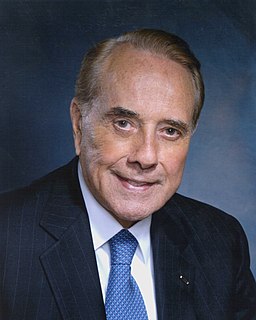
The 1996 Republican presidential primaries were the selection process by which voters of the Republican Party chose its nominee for President of the United States in the 1996 U.S. presidential election. Former Senator Bob Dole of Kansas, former Senate Majority Leader was selected as the nominee through a series of primary elections and caucuses culminating in the 1996 Republican National Convention held from August 12 to August 15, 1996, in San Diego, California.

The 2010 United States Senate election in Pennsylvania took place on November 2, 2010, during the 2010 midterm elections. Incumbent Republican-turned-Democrat U.S. Senator Arlen Specter ran for reelection to a sixth term, but lost in the Democratic primary to Joe Sestak. Republican nominee Pat Toomey then won the seat.

The 2004 United States Senate election in Pennsylvania was held on November 2, 2004. Incumbent Republican U.S. Senator Arlen Specter won re-election to a fifth term.

The 1992 United States Senate election in Illinois was held on November 3, 1992. Incumbent Democratic U.S. Senator Alan J. Dixon decided to run for re-election a third term, but was defeated in the primary against Carol Moseley Braun, who ended up winning the general election.
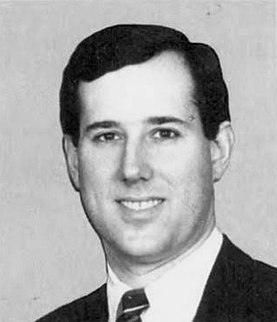
The 1994 United States Senate election in Pennsylvania was held November 8, 1994. Incumbent Democratic U.S. Senator Harris Wofford, who was recently appointed to the position in 1991, decided to seek re-election to a full six-year term, but was defeated by Republican Rick Santorum.

The 1998 United States Senate election in Pennsylvania was held November 3, 1998. Incumbent Republican U.S. Senator Arlen Specter won re-election to a fourth term.

The Pennsylvania gubernatorial election of 1978 was held on November 7, 1978 between Republican Dick Thornburgh and Democrat Pete Flaherty.

The 1992 United States Senate election in Pennsylvania was held on November 3, 1992. Incumbent Republican U.S. Senator Arlen Specter won re-election to a third term.
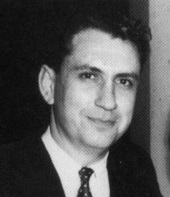
The 1980 United States Senate election in Pennsylvania was held on November 4, 1980. Incumbent Republican U.S. Senator Richard Schweiker decided to retire, instead of seeking a third term. Republican nominee Arlen Specter won the open seat, defeating Democratic nominee Peter F. Flaherty.

The Democratic primary for the 2010 United States Senate election in Pennsylvania took place on May 18, 2010, when Congressman Joe Sestak defeated incumbent Arlen Specter, which led to the end of Specter's five-term Senatorial career. Just prior to the start of the primary campaign, after serving in the Senate as a Republican for 29 years, Specter had switched to the Democratic Party in anticipation of a difficult primary challenge by Pat Toomey; Sestak was ultimately defeated by Toomey in the general election. Political observers and journalists described the race between Specter and Sestak as one of the bitterest and most watched of all the 2010 primary elections.

The 1976 United States Senate election in Pennsylvania was held on November 2, 1976. Incumbent Republican U.S. Senator and Minority Leader Hugh Scott decided to retire. Republican John Heinz won the open seat.